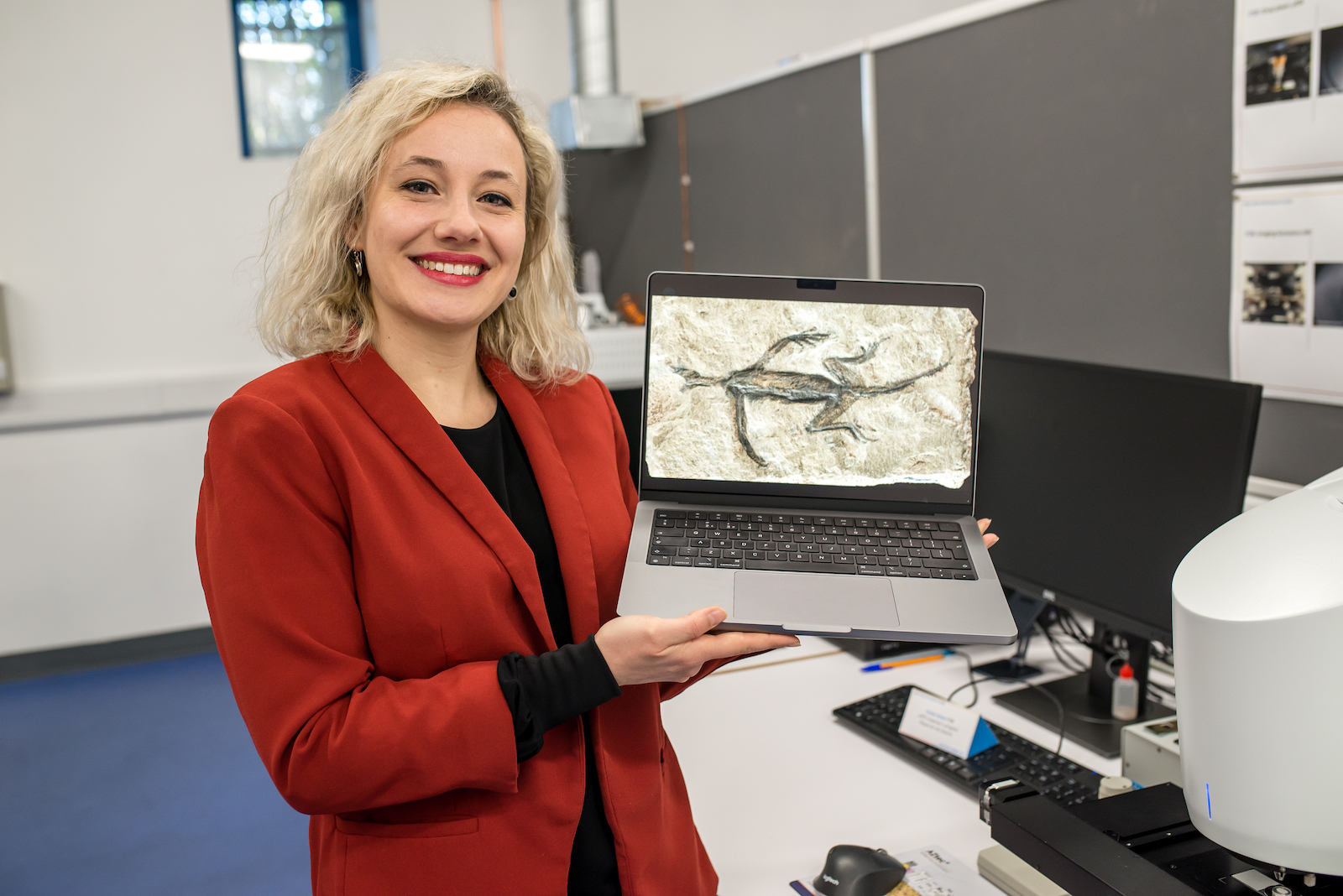
Modern technology has revealed that a 280-million-year-old reptile fossil whose exceptional state of preservation has puzzled researchers for decades is not what it appeared to be.
Tridentinosaurus antiquus was discovered in the Italian Alps in 1931. Scientists classified it as a member of the reptile group Protorosauria and held it up as an important specimen for understanding early reptile evolution.
But that was partly because the shape of its body, which appeared dark against the surrounding rock, was taken to be preserved soft tissues. New research incorporating microscopic analysis and UV photography, and published in the scientific journal Palaeontology, reveals that the fossil “is mostly just black paint on a carved lizard-shaped rock surface.” The lead author is paleobiologist Valentina Rossi of University College Cork, Ireland; the six co-authors include geoscientists and biologists.
Tridentinosaurus antiquus, which was discovered in the Italian alps in 1931. It was long thought that the dark outline was preserved soft tissues. However researchers have now discovered that this coloring is, in fact, paint. Photo: Valentina Rossi, UCC.
“Fossil soft tissues are rare, but when found in a fossil they can reveal important biological information, for instance, the external coloration, internal anatomy and physiology,” said Rossi. “The answer to all our questions was right in front of us, we had to study this fossil specimen in details to reveal its secrets—even those that perhaps we did not want to know.”
A few parts are real, the authors point out; the bones in the back limbs are genuine, if poorly preserved, and there are tiny bone scales, like crocodile scales, on what may have been the creature’s back.
“The peculiar preservation of Tridentinosaurus had puzzled experts for decades,” said one of the paper’s co-authors, Evelyn Kustatscher. “Now, it all makes sense. What it was described as carbonized skin is just paint.”